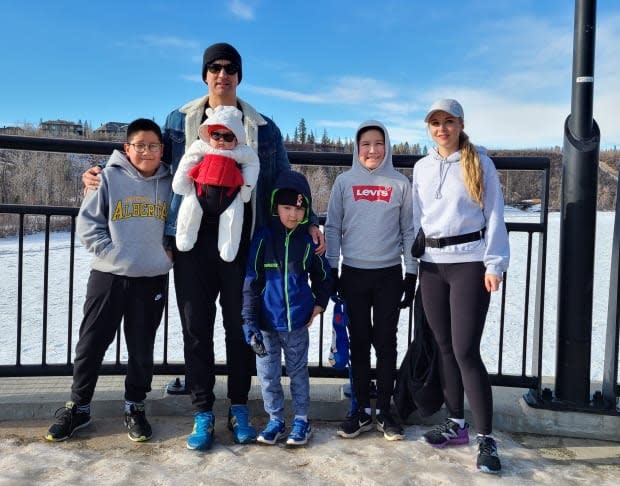Edmonton researcher looks into autism spectrum disorder through a First Nations lens

After struggling to find information to help him parent two sons on the autism spectrum, Grant Bruno decided to study autism in First Nations communities to help families in the future.
Despite his university education — he has a master of science degree in risk and community resilience — Bruno found it difficult to navigate the system in search of the right programs for his boys, ages 11 and six.
On top of that, he found no research on autism in First Nations communities.
To remedy the issue for his own family and for all Cree families, he decided to pursue a PhD in medical sciences at the University of Alberta, studying what life is like for families of kids with autism in Maskwacis, Alta.
"I really do want to explore those experiences," Bruno told CBC's Edmonton AM on Wednesday.
"Right now we're not really, there's not enough information on it … There's minimal academic literature on the actual lived experience of ASD [autism spectrum disorder] and an Indigenous cultural and community context."
Now, a year into his research, Bruno said he has found that only in non-Indigenous communities is autism considered a disorder.
People with autism have difficulties with communication and social deficits and can exhibit restrictive, repetitive behaviours and interests.
In Cree, the word used to describe autism is pîtoteyihtam — he/she thinks differently.
"There's no disorder, there's no deficit," Bruno said. "And anecdotally, what I've found is that I find our communities are really accepting of those on a spectrum."
Challenges with public health system
Bruno plans on exploring the relationship Cree communities have with the public health system, especially when it comes to diagnosing autism. He said many in the communities don't get diagnosed until they are adults.
To get a diagnosis, people need transportation and child care, and they need to travel to medical facilities in places like the Glenrose Rehabilitation Hospital in Edmonton, he said. And waiting lists can be a year or longer.
"So there's a lot of obstacles to getting a diagnosis."
He said it helps him that he lives in Edmonton, because having an on-reserve address disqualifies families from accessing provincial services. There are no federal programs for autism on reserves, he said.
"You don't have access to occupational therapists. You don't have access to speech language pathologists. You have very limited access to respite or anything of that nature.
"You have to leave your community to support your children and it's a tall order."
As part of his research, Bruno also wants to see how cultural programs such as powwows could potentially better accommodate people with autism such as powwows. He said he wants to look into a sensory-friendly round dance.
"They can be very overwhelming," he said. "It's a celebration. People are getting together, laughing and of course, this will be post-pandemic, but making and devising or strategizing around how do we make this as an inclusive space."
Bruno's research will take a minimum of four years and he wants all decisions around it "to be focused on the community through the community and by the community.
"What that does is it ... really addresses those power imbalances between the research, researcher and the researched and then the results kind of, you know, take care of themselves."

